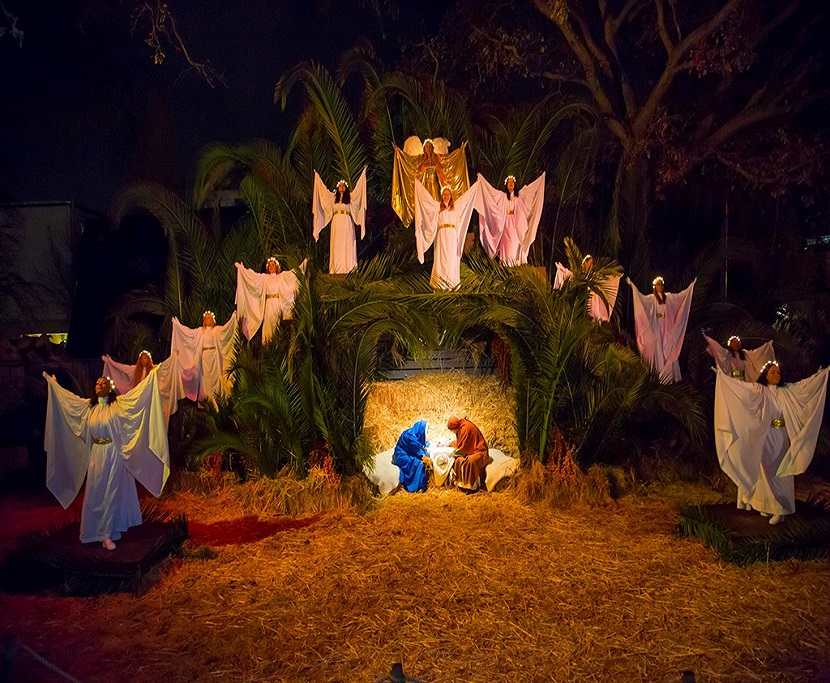Redwood City prides itself on being the entertainment hub of the Peninsula, with nearly 100 special events every year, from ethnic festivals to concerts at Courthouse Square. But providing city services to support those events adds up, and a recently approved fee schedule aims to recoup some of those costs, while streamlining the permit process.
The new fee schedule for events at Courthouse Square and elsewhere in the city was approved by the City Council April 22 and is an outgrowth of a multi-year study that looked at improving cost recovery for all city services, including those related to special events.
Concerned that an initial proposal from last year would have hit nonprofit event sponsors too hard, the rates the council approved had been discounted. To further cushion the blow, the city also set up a $15,000 one-year grant program so the nonprofits could apply for help. City staff is helping the groups connect to possible sponsors.
“We’re not saying ‘tough luck,’” said Chris Beth, the director of Parks, Recreation and Community Services. “We are actively making phone calls” in an effort to provide “a soft landing this year.”
Bethlehem AD, the outdoor living nativity that takes place every year just before Christmas, is one of the events that is affected.
Creative Director Paula Dresden recently got word that the charge for police and other city services will be at least $21,000, close to half of Bethlehem AD’s $45,000 budget. She had heard last fall that there would be a new fee in 2019 — but the amount was a jolt.
“Twenty-thousand dollars is a big burden for us,” she said, “and we don’t know what God will do. We’ve seen Him provide throughout the years.”
Ivan Martinez is the executive director of the Police Activities League, which sponsors a music festival on Courthouse Square in July that attracts close to 10,000 people. He said it will not be affected until next year.
“That’s our biggest fundraiser,” Martinez said. “I’m just kind of waiting to see how much more are we thinking about,” which will impact the money available to go into programs.
Beth, whose department is now the clearinghouse for the permits, said the city recognizes the contributions nonprofits make and is trying to help them find sponsors. Beth noted that the new fees, in fact, are discounted from an earlier proposal that would have charged the full cost of staffing, including employee benefits. That was scaled back to just salaries.
Routing all permit applications through the parks department is intended to simplify the process and to ensure consistency, Beth added.
As Redwood City has staked out a place as the place to go for entertainment, the number of events has grown and several have gotten much larger over the years. With that comes the need for expanded public safety services, including traffic controls and parking enforcement.
“They are growing every year,” said Police Chief Dan Mulholland. “We have a downtown core that is attractive but there are a lot of costs that are associated with that.”
Two large events – the Fourth of July Parade and Hometown Holidays – were deemed “legacy events” that have gone on a long time or had city support and were exempted.
During the discussion at the April 22 council meeting, Councilmember Alicia Aguirre voiced concern about the burden that will be placed on nonprofits paying overtime rates for police working special events. Afraid that they wouldn’t be able to sustain their events under the new plan, even with the sweeteners, Aguirre cast the sole “no” vote. Council members Janet Borgens and Giselle Hale were absent.
Since getting the news a few weeks ago, Dresden has focused on a deadline to apply for a $5,000 Civic Cultural Commission grant. She is pursuing other fund-raising possibilities, including sponsorships and applying for some of the $15,000 special parks fund. “We’re going to have to double our efforts to raise funds,” she said.
Dresden also wants to talk to the police department about ways to bring down their charges. A combination of paid sworn officers and reservists, who contribute as volunteers, are on hand during the three nights, and some police officers also volunteer their time. The $20,000 also includes the cost of providing barricades.
Entering its 26th year, Bethlehem AD is a free event that takes place on three nights. More than 500 volunteers, whose work begins months in advance, strive to make the event as faithful as possible to the time some 2,000 years ago when Jesus Christ was born. Construction workers build an “authentic” Jewish village, which is populated by costumed re-enactors, including Roman soldiers and an angelic host hovering over the manager scene.
Between 22,000 and 24,000 people visit Bethlehem AD, and there are donation baskets at the exit. That takes in less than half the cost of putting on the event, Dresden said. She does not, however, want to charge admission.
She will also look at ways to reduce the cost of staging Bethlehem AD, perhaps having fewer barnyard animals and cutting back on food for volunteers. Dresden thinks the event will survive this year because of the grant programs but worries about next year.
Ironically, various city and San Mateo County officials and staff usually participate as costumed characters, among them Chief Mulholland, last year in the role of one of the three wise men.
“I had gold,” he confirmed.






